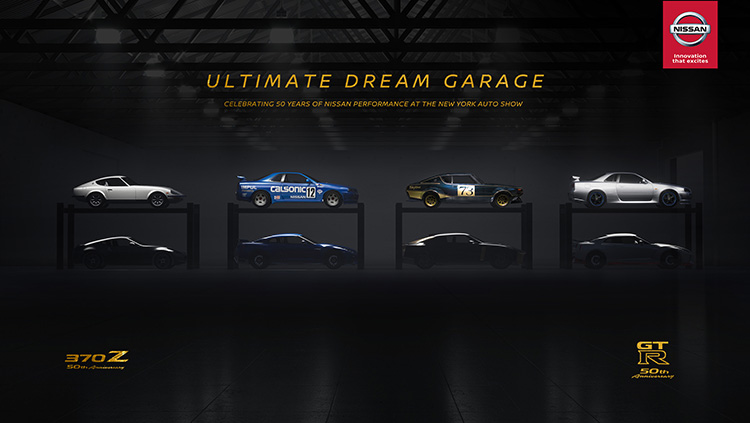YOKOHAMA, Japan (Reuters) – An external committee tasked with recommending ways to improve governance at Nissan Motor Co said on Wednesday there were sufficient facts to suspect violations of laws and the private use of company funds by ousted chairman Carlos Ghosn. FILE PHOTO: Former Nissan Motor Chairman Carlos Ghosn sits inside the car as… Continue reading Nissan committee says facts point to legal violations by former chairman Ghosn
Tag: Mitsubishi
Nissan panel to propose bigger role for external directors in Ghosn scandal’s wake
TOKYO (Reuters) – A committee tasked with revamping corporate governance at Nissan Motor Co is expected to recommend on Wednesday a bigger role for external directors in overseeing the Japanese automaker following Carlos Ghosn’s arrest and ouster as chairman. FILE PHOTO: Former Nissan Motor Chairman Carlos Ghosn sits inside the car as he leaves his… Continue reading Nissan panel to propose bigger role for external directors in Ghosn scandal’s wake
RCI Bank and Services launches its savings activity in Brazil
In line with its refinancing diversification strategy, RCI Bank and Services is pursuing development of its savings activity – for the first time outside Europe – with the launch of bank certificates of deposit[1] (CDB) for individual customers in Brazil. It is the first finance company to do so in the Brazilian market. RCI Bank… Continue reading RCI Bank and Services launches its savings activity in Brazil
Nissan: Nissan to celebrate 50 years of performance at NYIAS
NEW YORK – Come experience a garage 50 years in the making – the Nissan Dream Garage at the 2019 New York International Auto Show. About Nissan North America In North America, Nissan’s operations include automotive styling, engineering, consumer and corporate financing, sales and marketing, distribution and manufacturing. Nissan is dedicated to improving the environment under… Continue reading Nissan: Nissan to celebrate 50 years of performance at NYIAS
Renault Nissan Mitsubishi uses Microsoft cloud
Now the alliance (Renault-Nissan-Mitsubishi) has also switched to Azure’s cloud. More and more manufacturers are moving their data centers to the Microsoft cloud: Azure. Just recently Daimler his Moving completed and also Volkswagen cooperates with Microsoft. Now also has the alliance consisting of Renault, Nissan and Mitsubishi, decided to use the Azure cloud. Renault Nissan… Continue reading Renault Nissan Mitsubishi uses Microsoft cloud
Mitsubishi COO was set for new alliance post, then Ghosn happened – Automotive News Europe
Mann is one of several high-level executives leaving in the wake of Ghosn’s removal as chairman of Renault, Nissan and Mitsubishi. Also out is Vincent Cobee, 50, who joined Mitsubishi from Nissan as corporate vice president in charge of product strategy. Arun Bajaj, 48, global head of human relations for the Renault-Nissan-Mitsubishi alliance, left March 11.… Continue reading Mitsubishi COO was set for new alliance post, then Ghosn happened – Automotive News Europe
Renault-Nissan-Mitsubishi Launches Alliance Intelligent Cloud on Microsoft Azure
Renault-Nissan-Mitsubishi, the world’s leading automotive alliance, today announced the production release of the Alliance Intelligent Cloud, a new platform that is enabling Renault, Nissan and Mitsubishi Motors to deliver connected services in vehicles sold in nearly all 200 markets served by the Alliance member companies. Culminating joint development efforts between the Alliance and Microsoft, the… Continue reading Renault-Nissan-Mitsubishi Launches Alliance Intelligent Cloud on Microsoft Azure
Nissan governance panel sees no need to overhaul alliance agreement -source
FILE PHOTO: The logos of car manufacturers Renault and Nissan are seen in front of a common dealership of the companies in Saint-Avold, France, Jan. 15, 2019. REUTERS/Christian Hartmann/File Photo TOKYO (Reuters) – The external committee tasked with improving governance at Nissan Motor Co believes the firm can deepen ties with Renault SA without overhauling… Continue reading Nissan governance panel sees no need to overhaul alliance agreement -source
Nissan and Mitsubishi expand collaboration, to launch new sub-compact cars
Nissan and Mitsubishi expand collaboration, to launch new sub-compact cars
Renault-Nissan-Mitsubishi Senior Management Appointment
Searching for your content…
No results found. Please change your search terms and try again.
